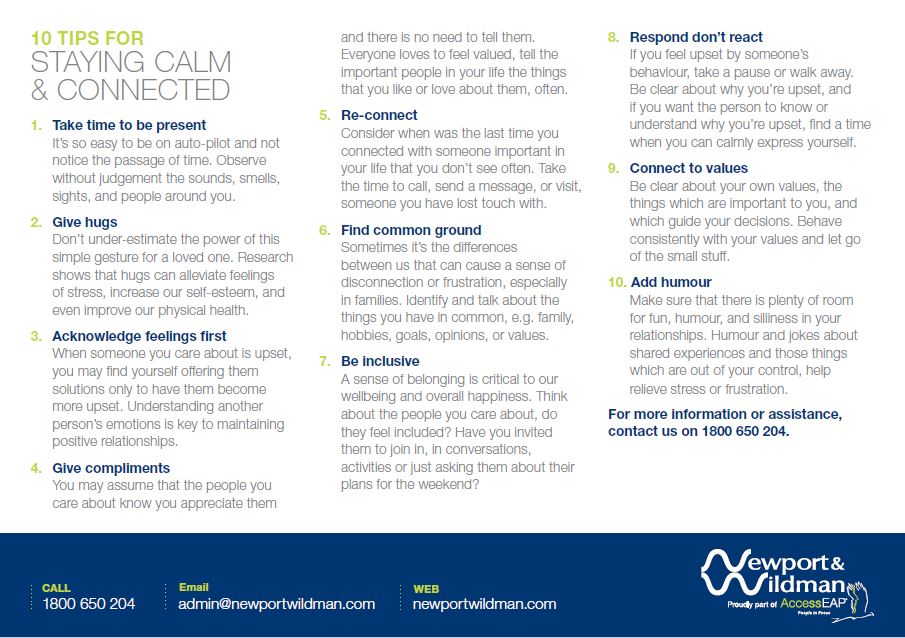You don’t have to be an expert to support someone going through a tough time. You just need to be able to listen to their concerns without judgment and take the time to follow up with them.
10 Tips on How to Have a Conversation on R U OK? Day
1. Know your colleagues
Relationship building is very important when it comes to mental health in the workplace. You will need to feel comfortable to approach a colleague that you may be concerned about. Also in order to pick up that someone is behaving out of character you will need to know how they usually behave.
2. Approach the person
It may be difficult to do, feeling a little anxious about approaching a colleague to ask them if they are OK is normal, it is necessary that we do it none the less. Think about whether you are the right person to approach your colleague, and if for any reason you think you may not be the best person, employ the appropriate person to approach your colleague you are concerned about. Make sure this is done with discretion and confidentially.
3. Explain why you are having this discussion with them
Be clear that you are concerned about the person and give specific examples of the observed behaviour change that sparked your concern. For example: "you are usually the first one at Friday drinks after work and the life and soul of the party; however, I’ve noticed you have not been coming for the past few weeks." OR "you are usually the first one at work and never take a sick day, however, I have noticed that over the past few weeks you have been arriving at work late and have had a few sick days."
4. R U OK?
Ask the question clearly and directly.
5. Listen
Listen to what the person is saying and also listen for how they are feeling. Do not interrupt, just listen and at the end summarise what you have heard to check that your understanding is correct.
6. Do not go into solution mode
It is not your responsibility to "fix" the problem or "save" your colleague – giving solutions can make the situation much worse.
7. Do not counsel the person
You are not a counsellor or psychologist and should not try to be that for the person.
8. Encourage the person to take action
Point the person in the right direction i.e. HR, EAP and/or their GP. You may have to support the person to seek help by going with them to HR, or making an appointment for them with the EAP or their GP and possibly accompanying them to the appointment.
9. Ask what way you can assist
Allow the person the opportunity to explain what would be helpful for them. For some it will be joining them for a walk, for others it might be a ride to work.
10. Follow up
Don’t just leave it there, it is very important to check in with the person regularly to see if they are OK.
For further information about the not for profit organisation visit www.ruokday.com
Newport & Wildman provides confidential Counselling services and psychological related training for employees, managers, family and friends. For more information, please contact us on 1800 650 204.





